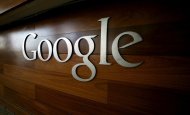US regulators closed a lengthy antitrust probe into
Google on Thursday, saying there was not enough evidence to show the
Internet giant manipulated its search results to harm its competitors.
The Federal Trade Commission said it lacked a legal basis to bring a
case against Google for allegedly abusing its dominance in Internet
searches, but it won commitments from the tech titan to end its "most
troubling" practices.FTC chairman Jon Leibowitz said the action concludes a year-and-a-half-long probe of the world's biggest search and online advertising firm, accused by rivals of abusing its market dominance.
Leibowitz said the FTC "exhaustively investigated allegations that Google unfairly manipulated its search engine results to harm its competitors" but found the evidence did not support an enforcement action.
"The facts weren't there under the law we apply," he added, arguing that even though some commercial rivals resent Google search "it doesn't violate the American antitrust laws."
But he nevertheless said Google had made "enforceable commitments" in a voluntary settlement "to stop the most troubling of its business practices related to Internet search and search advertising."
Google had agreed to stop misappropriating or "scraping" snippets of content from rivals to makes it appear as if it were from Google, he said.
It will also drop contractual restrictions that limit the ability of small businesses to advertise on competing search engines.
In a separate patent case, Google agreed to abide by an FTC order "to stop seeking to exclude competitors using essential patents," mainly from Motorola, which Google purchased, the FTC chief said.
The action in Washington leaves unclear the outcome of a similar probe by the European Commission into Google's alleged monopoly abuse.
The European Union said last month it was still seeking commitments from the US firm that it abused its dominant market position in Internet search.
Google has close to 70 percent of the search market in the United States, and more in some other markets.
Google's chief legal officer David Drummond said of the FTC decision: "The conclusion is clear: Google's services are good for users and good for competition."
Leibowitz said Google's commitments are "binding" and "enforceable" because the company made a written pledge to the federal regulatory agency. Any violation of those promises could result in fines, he said.
"This is a major victory for Google," said Greg Sterling, an analyst with Sterling Market Intelligence who blogs at Search Engine Land.
"The settlement requires Google to make some relatively minor changes to its AdWords practices and to the way it deals with the indexing and presentation of third party content.
"All of these are simple actions that involve little or no expense on the company's part. By the same token, there are no fines and no continuing litigation."
Google's critics were predictably disappointed by the action.
FairSearch.org -- a coalition of firms which includes Microsoft, Oracle and Tripadvisor -- said the FTC's "inaction on the core question of search bias will only embolden Google to act more aggressively to misuse its monopoly power to harm other innovators."
But the group said the settlement "is by no means the last word in this case," and that EU and US state regulators may go further.
John Simpson of Consumer Watchdog claimed the tech giant "clearly skews search results to favor its own products and services while portraying the results as unbiased. That undermines competition and hurts consumers."
Steve Pociask of the American Consumer Institute said: "Letting Google off with a letter promising not to do it again is like believing Lindsey Lohan will stay out of trouble this time."
But Eric Goldman, a Santa Clara University law professor, said the outcome should have been obvious.
"From the outset it was clear there wasn't any evidence that Google had engaged in non-permissable practices," he said.
"And even if they did the FTC did not have an endgame," he said, because the agency would be forced to try to regulate a technically complex search engine.
 3:51 PM
3:51 PM
 specialshowtoday
specialshowtoday


 Posted in:
Posted in: 

0 comments:
Post a Comment